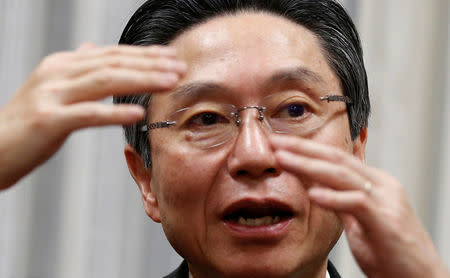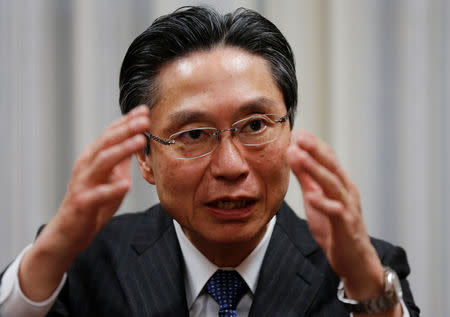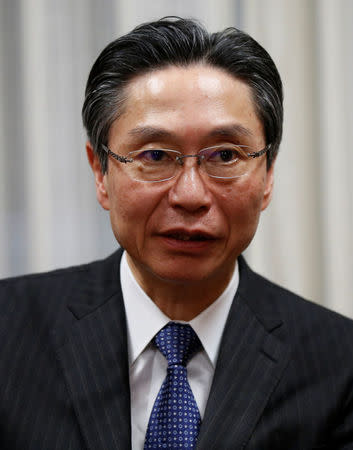Japan's BTMU bank mulls fee hike for big clients amid negative interest rates
By Taiga Uranaka and Taro Fuse TOKYO (Reuters) - Bank of Tokyo-Mitsubishi UFJ (BTMU), a core unit of Mitsubishi UFJ Financial Group (MUFG) <8306.T>, is in talks with its big corporate customers on potential fee hikes, in a bid to pass on some of the costs of negative interest rates. Japanese banks, particularly smaller ones, have struggled to eke out profits from lending amid an ultra-low interest rate environment, exacerbated by the Bank of Japan's aggressive negative interest rate policy. BTMU CEO Takashi Oyamada told Reuters the bank, one of the nation's three megabanks, is reviewing the fee discounts offered to its biggest corporate customers. But discussions with clients have yet to yield "big results". "In Japan, charging fees is difficult to gain acceptance. It will take time," said Oyamada, who is also the new chairman of the Japanese Bankers Association. Banks have not transferred the costs of negative rates to retail customers, fearing a public backlash for charging fees on cash deposits. Instead, they are trying to offset diminishing returns from loans with fee businesses, such as selling mutual funds to retail customers and providing advisory services to corporate clients. But these businesses have yet to become a driver of profit. MUFG, Japan's largest lender by assets, expects an 11 percent fall in net profit for the year ended in March, hit by its weak lending business. Following the BOJ's surprise move last year, lenders cut their interest rates on ordinary deposits to barely above zero, 0.001 percent. Policymakers hoped their actions would spur spending and investment by lowering borrowing costs, but instead banks have seen a sharp increase in bank deposits. Outstanding deposits at Japan's major banks rose 6 percent year-on-year during the October-December quarter, BOJ data showed, while loans edged up just 1.4 percent during the same period. "There are positives and negatives of the negative interest rate policy," Oyamada said. "The benefits of low interest rates have reached the corporate sector. At the same time, pensions and life insurances have been experiencing falling returns." (Reporting by Taiga Uranaka; Editing by Randy Fabi)

 Yahoo Finance
Yahoo Finance 


